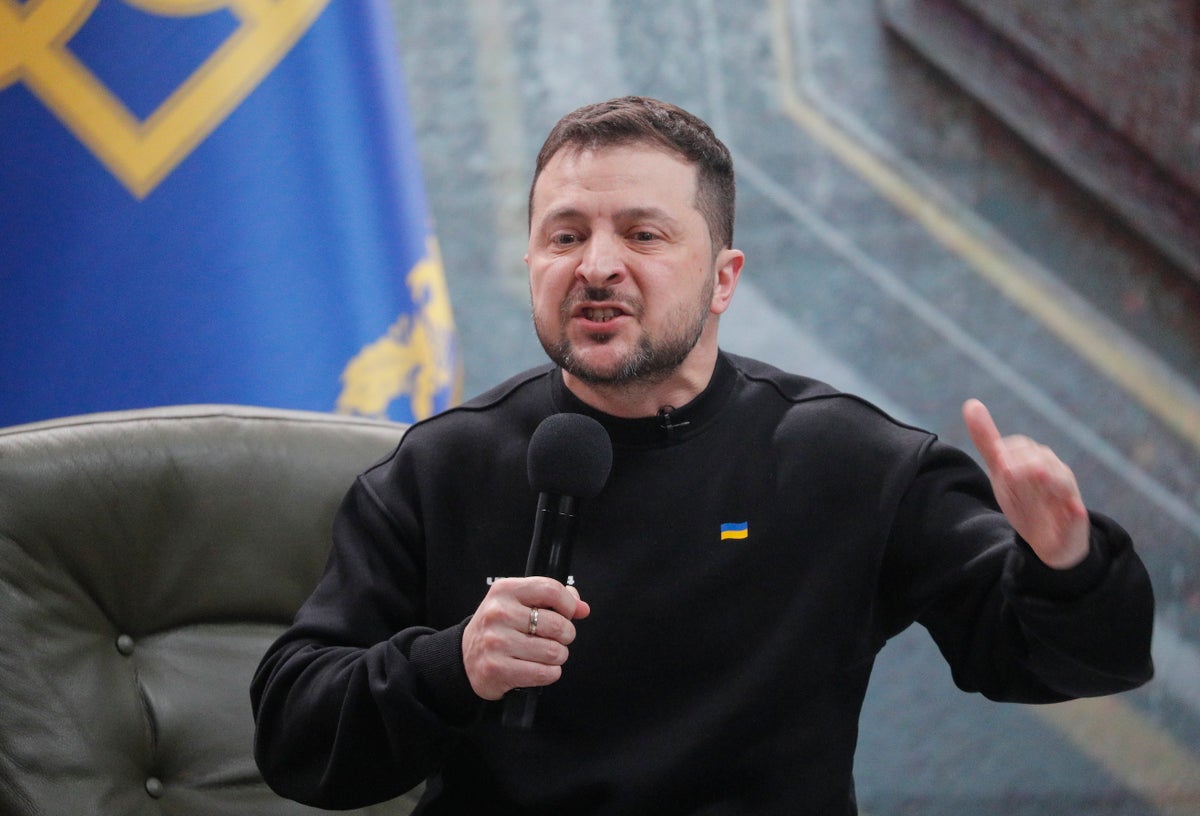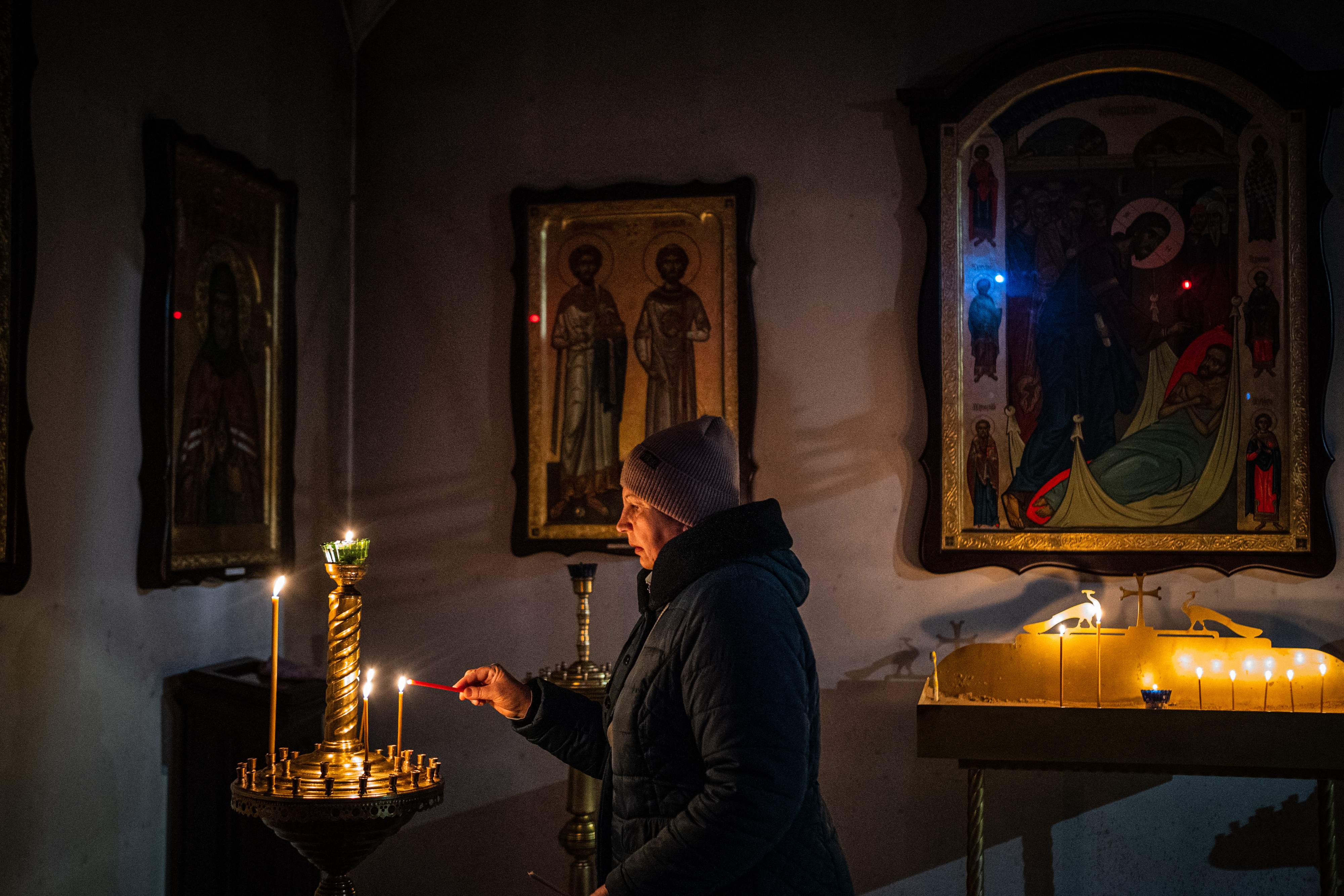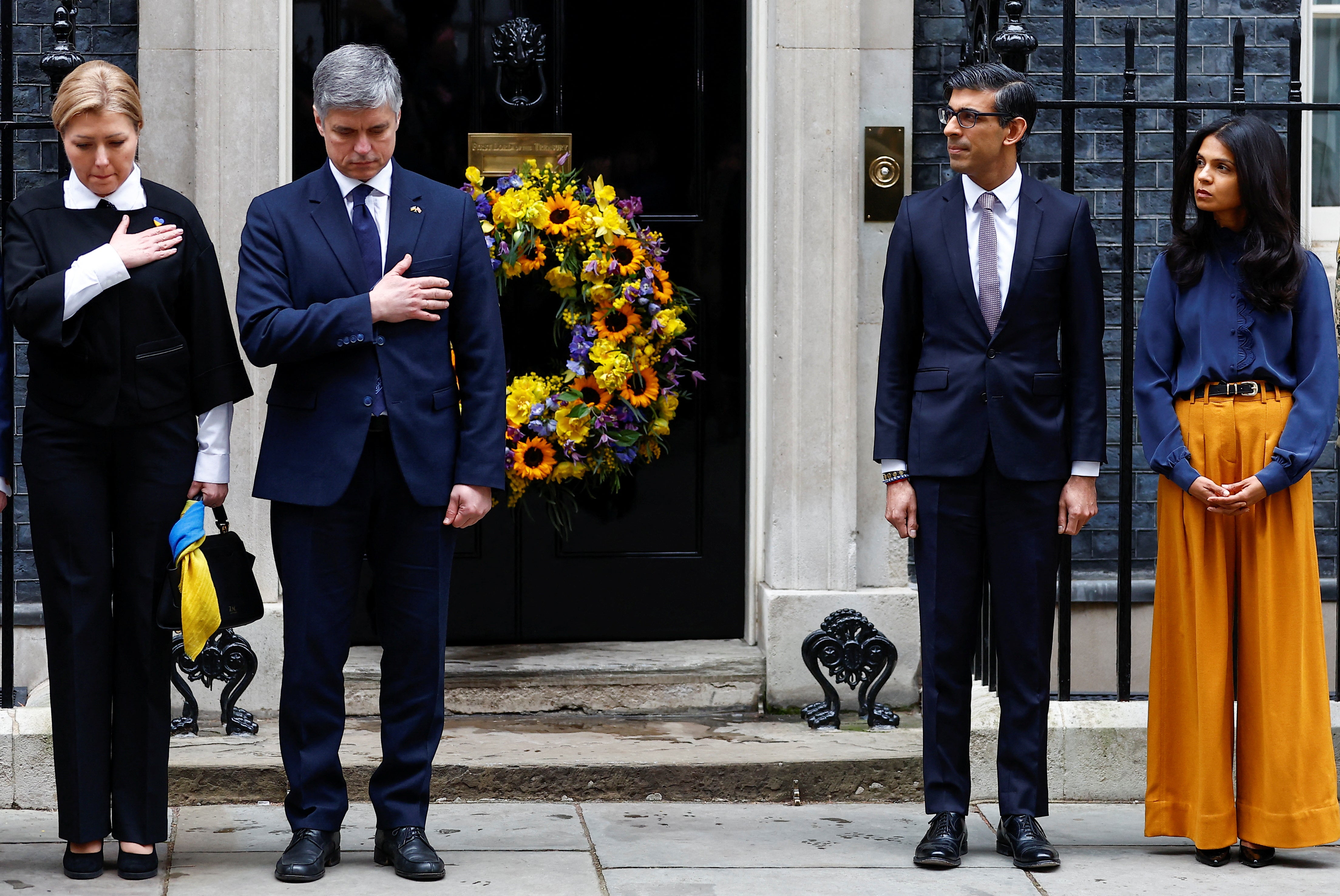
Ukraine has marked the first anniversary of the war – celebrating the heroic resistance which had thrown back Russian forces, and commemorating those who have fallen in the battles to defend the nation.
President Volodymyr Zelensky, whose leadership has symbolised his country’s defiance in the face of Vladimir Putin’s invasion declared his people had proved themselves to be “invincible” in a “year of pain” and pledged that victory will come from the sacrifice they have made.
Ukraine’s leader revealed that Western allies were preparing to provide Ukraine with the tools needed to win. And after receiving the first Leopard 2 tanks pledged by allies, he indicated that F-16 fighter jets might finally also be on the way, with other nations following Britain in offering to train Ukrainian pilots.
“If our partners respect all their promises and deadlines, victory inevitably awaits us,” he said.
It came as:
- Britain announced new sanctions, imposing an export ban on every piece of equipment Russia has been found using in Ukraine
- G7 leaders spoke by phone and committed to “increasing the costs to Russia”
- China presented a 12-point peace plan and called for a ceasefire
- Four German-built Leopard 2 tanks arrived in Ukraine from Poland
- Rishi Sunak led Britain in a minute’s silence from Downing Street with his wife and Kyiv’s ambassador
- King Charles praised the “remarkable courage” of the Ukrainian people
- Vladimir Putin spoke to Recep Tayyip Erdogan about boosting energy supplies to Turkey
After sombre ceremonies marking the anniversary of the start of the conflict, Mr Zelensky told a televised news conference in Kyiv that he is “having conversations” with three Nato nations about pilot training courses leading to the possibility of supplying war planes.
He said he had held further talks with Mr Sunak. Responding to a question from a British journalist, he laughed: “Where are my Typhoon aircraft? Please ask my friend Rishi”.
Britain had rejected sending RAF Typhoons to Ukraine because, according to defence secretary Ben Wallace, the jets would be “too complex”. However, they could be used to provide air cover for former Warsaw Pact Nato members who could send their Mig-29 and other Soviet-era jets to Kyiv.
After initial reluctance from western allies to send fighter jets, there now appears to be momentum building to reverse the stance.

Ukraine’s defence minister, Oleksii Reznikov, has claimed that a decision to transfer aircraft to Ukraine is now only “one or two months” away.
Mr Zelensky declared the 12 months since Mr Putin’s invasion a “year of our invincibility... year of our victory”.
As well as defending the country in war, there was, said Mr Zelensky, the need for a diplomatic offensive by Ukraine to present the case against Russia to those countries which had been lukewarm in condemning the invasion and remained on the fence. African and Latin American states would be approached, with the Brazilian president Luiz Inacio Lula da Silva asked to help with liaison with the latter.
While western leaders were dismissive of the China peace plan, Mr Zelesnky was keen to avoid directly criticising Beijing. “China has shown its thoughts,” he said. “But the question is what follows the words. The question is in the steps and where they will lead to.”
He also said he would like to meet Chinese president Xi Jinping: “I believe that it will benefit our countries and the security of the world.”
Meanwhile, at St Vladimir’s Church in Kyiv, a service was being held for Yuri Storazhev of the 112th Brigade who was being buried by his comrades, relations and friends. “He was a good man and a brave man, he died for his country,” said one of the soldiers.

Others in the church were locked in their own grief. Olena Kuznetsova had gone to light a candle for her 22-year-old son, Yuri, who had volunteered to fight and died in a muddy field in the Donbas.
“He said he could not sit at home while others had gone to fight,” she said. “He sacrificed himself for his country. Everyone says what he did was very brave and great. But he was everything. No one can know the pain of a mother who has lost a child unless they have been through this. I do not wish this on anyone, Ukrainian or Russian ... all this because of one man, why?”
Ms Kuznetsova, 52, a shop assistant, was full of pride for her son’s achievements at school and college. “He wanted to be a biologist, he worked so hard, getting a job to help me as well as studying. He had such plans.”
Marina Levchenka stopped to comfort Ms Kuznetsova. Her 28-year-old brother, Danylo, had been killed near Kherson. “We are bound up in this, we share losses,” she said. ”All this was unthinkable just a year ago. None of us thought there would be such a war, in this day and age, causing so much sorrow and pain”.
Thousands of people also gathered on Friday in cities across the world to protest against the invasion of Ukraine. Demonstrators held anti-war placards in Athens, while in Yerevan, Armenia, they burnt effigies of Mr Putin. In Berlin the Brandenburg Gate was lit in the colours of the Ukrainian flag while a tank was also parked close by.







